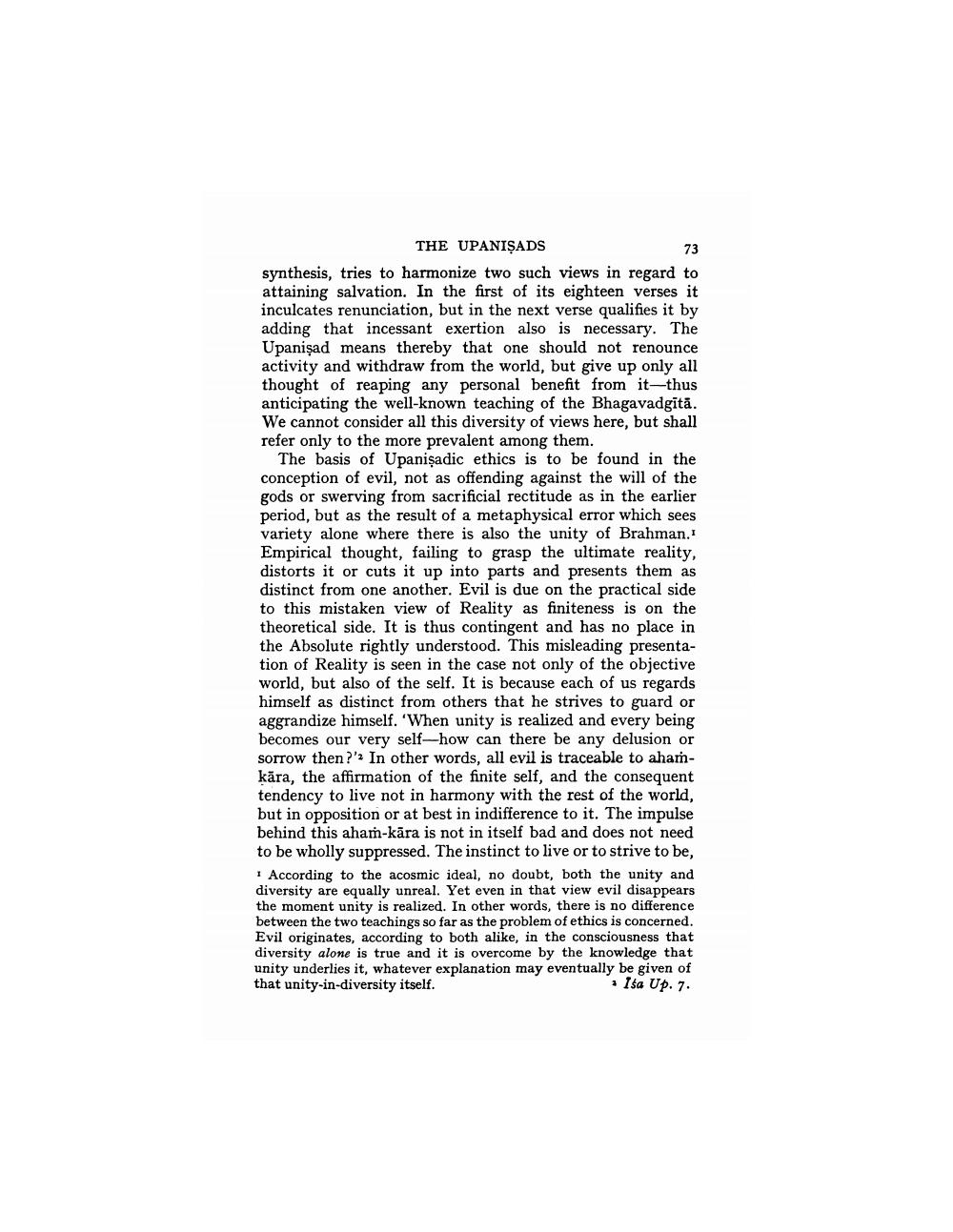________________
THE UPANIŞADS synthesis, tries to harmonize two such views in regard to attaining salvation. In the first of its eighteen verses it inculcates renunciation, but in the next verse qualifies it by adding that incessant exertion also is necessary. The Upanişad means thereby that one should not renounce activity and withdraw from the world, but give up only all thought of reaping any personal benefit from it-thus anticipating the well-known teaching of the Bhagavadgitā. We cannot consider all this diversity of views here, but shall refer only to the more prevalent among them.
The basis of Upanişadic ethics is to be found in the conception of evil, not as offending against the will of the gods or swerving from sacrificial rectitude as in the earlier period, but as the result of a metaphysical error which sees variety alone where there is also the unity of Brahman. Empirical thought, failing to grasp the ultimate reality, distorts it or cuts it up into parts and presents them as distinct from one another. Evil is due on the practical side to this mistaken view of Reality as finiteness is on the theoretical side. It is thus contingent and has no place in the Absolute rightly understood. This misleading presentation of Reality is seen in the case not only of the objective world, but also of the self. It is because each of us regards himself as distinct from others that he strives to guard or aggrandize himself. 'When unity is realized and every being becomes our very self-how can there be any delusion or sorrow then?'. In other words, all evil is traceable to ahamkära, the affirmation of the finite self, and the consequent tendency to live not in harmony with the rest of the world, but in opposition or at best in indifference to it. The impulse behind this aham-kāra is not in itself bad and does not need to be wholly suppressed. The instinct to live or to strive to be, 1 According to the acosmic ideal, no doubt, both the unity and diversity are equally unreal. Yet even in that view evil disappears the moment unity is realized. In other words, there is no difference between the two teachings so far as the problem of ethics is concerned. Evil originates, according to both alike, in the consciousness that diversity alone is true and it is overcome by the knowledge that unity underlies it, whatever explanation may eventually be given of that unity-in-diversity itself.
· Isa Up.7.




